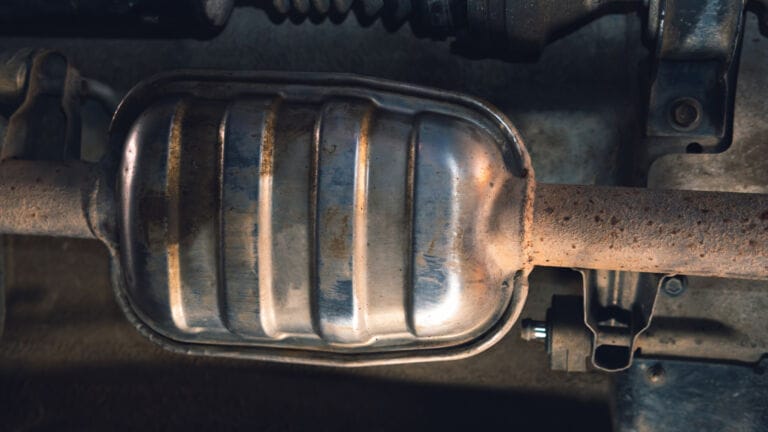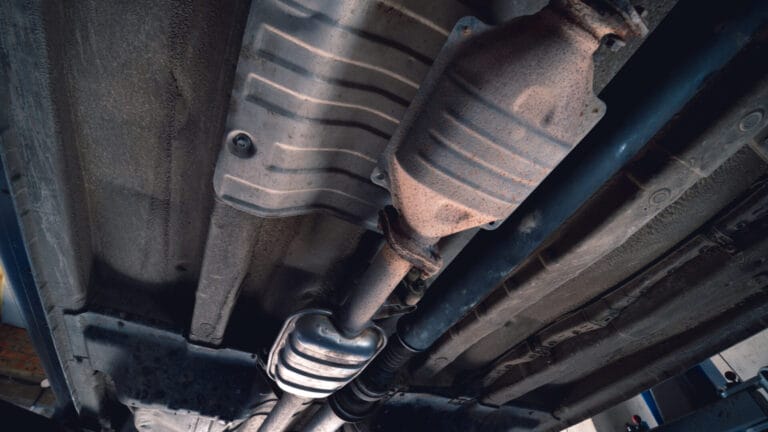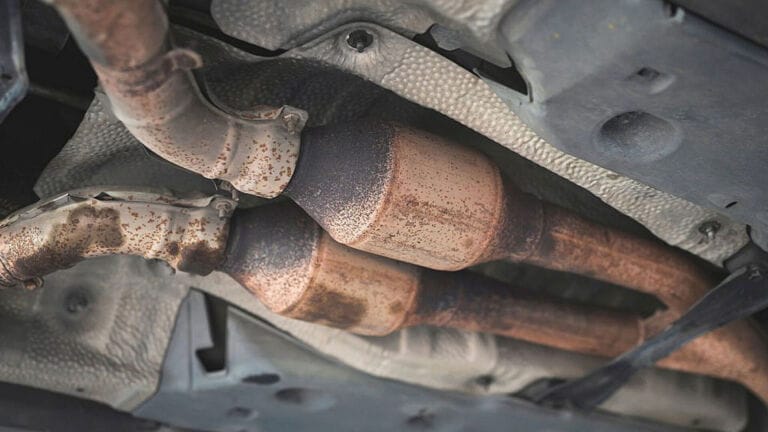Can A Leaking Exhaust Manifold Cause Overheating? A Comprehensive Discussion
Are you having strange symptoms in your vehicle, like reduced power, noisy exhaust, illuminated CEL, low gas, and black smoke? You may often notice overheating, too, with these symptoms. Well, these symptoms indicate that you have a leaked exhaust manifold.
Can a leaking exhaust manifold cause overheating, too? The answer is no. But if your vehicle has more issues like a faulty gasket, faulty coolant, or clogged intake exhaust, it may cause the engine to overheat. In short, the manifold alone won’t raise overheating issues.
Keep reading for more insight into when an exhaust manifold does and does not cause overheating problems. Let’s start with an overview of leaky exhaust manifold symptoms.
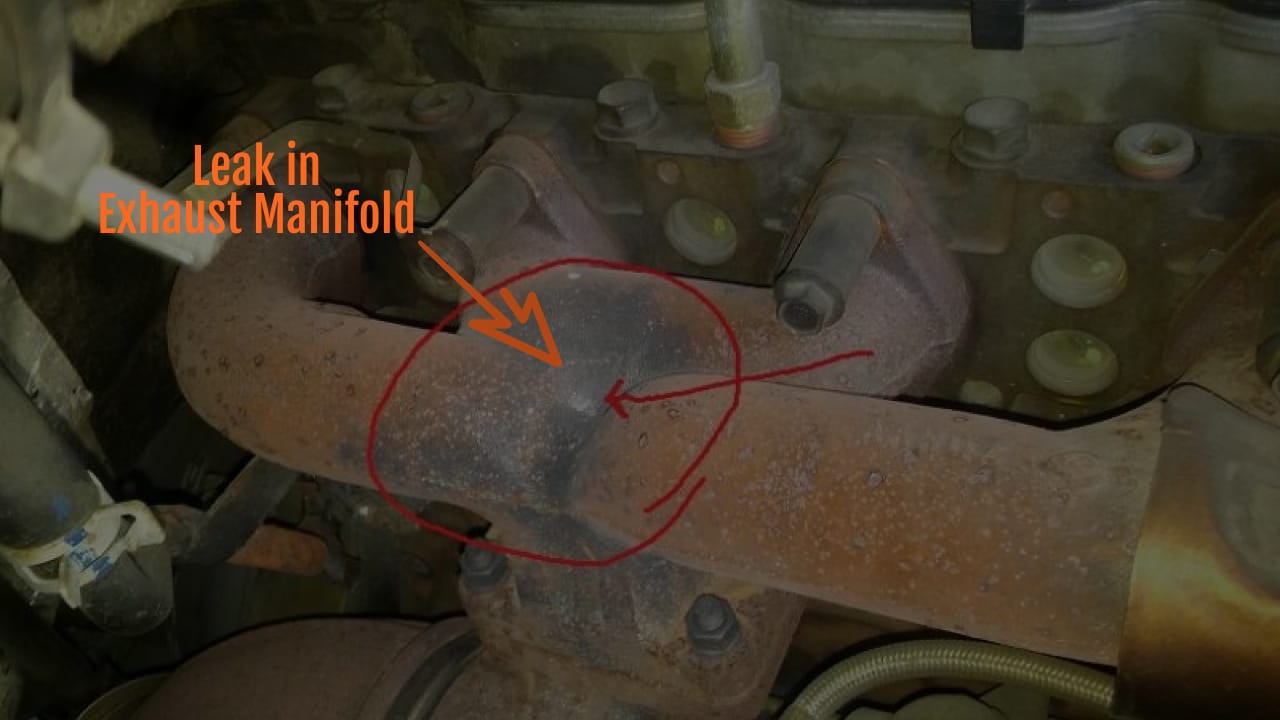
Symptoms of Leaked Exhaust Manifold
Here are some key symptoms that indicate leaks on the exhaust manifold of your vehicle:
Noisy Exhaust
A leak in the exhaust manifold will cause abnormal noises coming from the exhaust system, such as loud hissing, whistling, or popping sounds.
Reduced Power and Performance
Exhaust leaks reduce engine efficiency and power by restricting exhaust from exiting properly. This leads to reduced acceleration and top speed.
Irregular Engine Sounds
Air entering the exhaust system can change the sound of the engine from a smooth hum to a rougher tone. Knocking or ticking noises may also occur.
Excessive Black or Grey Exhaust Smoke
Small amounts of dark exhaust smoke can indicate a rich fuel mixture from extra air entering the manifold and engine.
A muffler or Tailpipe Discoloration
Leaking exhaust exposes the tailpipe and muffler to excess heat. This may cause surface discoloration, patches of soot, or rust.
Low Gas Mileage
Inefficient engine operation and power loss from a leak result in poorer fuel efficiency and shorter driving range per tank.
Burning Smell
A leak allows combustion gases to mingle with engine bay air, creating the acrid smell of burning exhaust near the manifold.
Illuminated Check Engine Light
The car’s computer detects changes in exhaust flow. This may trigger a diagnostic trouble code and turn on the check engine light.
Can A Leaking Exhaust Manifold Cause Overheating?
So, if you notice the above symptoms, you should check the exhaust manifold. However, a leak on the exhaust manifold doesn’t cause overheating issues in your vehicle. Here’s how:
Generally, the exhaust manifold collects the exhaust gases from the engine’s cylinders and directs them into the exhaust pipe. The exhaust gases are the product’s combustion, which is the process of burning fuel and air in the engine’s cylinders.
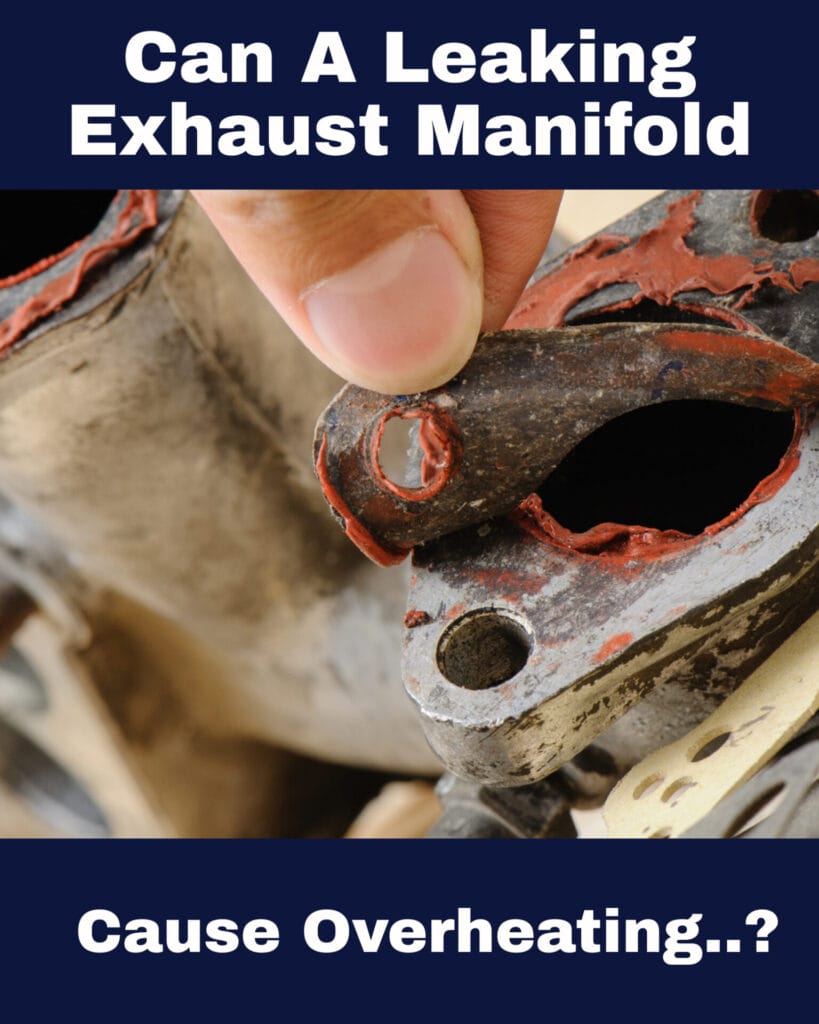
The intake manifold is the part of the engine that collects air and delivers it to the cylinders. Therefore, the exhaust manifold is not directly connected to the engine’s exhaust process.
Hence, when there’s a leak in the exhaust manifold, it doesn’t overheat the engine. But the purpose of the exhaust manifold is to release the heated air through the pipe. So, it may make the surrounding components hot and release a burning smell when the air fails to escape.
Is There Still Any Possibilities That A Leaking Exhaust Manifold Causes Overheating?
Though the manifold alone can’t cause the overheating problem, if there is another faulty component, you may face overheating issues. For instance, if the cooling system isn’t working functionally, it can’t compensate for the heat from the leaking exhaust manifold.
As a result, the cooling system will fail to prevent the engine from overheating.
Similarly, if the leak is close to the components from which it draws gases, the components may draw the released gases back into the engine. Thus, the engine will overheat and can also get damaged.
In short, the exhaust manifold alone can’t cause overheating issues, unless there is another faulty component connected to the engine heating.
What Actually Causes Engine Overheating?
If you’re facing an engine overheating issue without any symptoms of a leaked exhaust manifold, you should check some specific components. For your convenience, here are the components you need to check:
- Check the coolant level and functionality
- Find out whether the radiator is clogged
- Check for faulty water pump
- Inspect the head gasket for leaks
- Check for defective thermostats
- Inspect the oil level and vacuum
- Examine the engine for problems
- Lastly, check the exhaust manifold if it’s working functionally.
FAQs
Here are some common questions people often ask:
At what point does a small exhaust leak become an overheating issue?
A minor leak alone typically won’t cause overheating. However, as the leak size increases over time, it allows more hot air recirculation. A 5-10% restriction is usually the threshold where overheating starts to occur.
What happens if you drive with an exhaust manifold leak?
If you drive a car with an exhaust manifold leak, it can eventually damage components like the head gasket, catalytic converter, and wiring. When you drive, it creates more exhaust gases that get stuck and damage other parts.
Can an exhaust leak cause vibration?
As exhaust gases escape through the leak, it can create imbalances that cause engine parts to vibrate. The leak allows the vibrating exhaust to bypass the muffler, sending vibrations through the car.
Conclusion
You now have the answer to the question: can a leaking exhaust manifold cause overheating? To summarise the answer, the exhaust manifold is unable to overheat the engine directly.
If you have overheating issues in your vehicle with the symptoms of a leaking exhaust manifold, you need to check other related parts. In case you can’t find the exact reason behind the overheating issue, consider seeking professional service.


